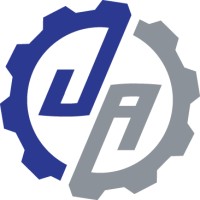
Jerit Automation Inc.
Jerit Automation is a leading provider of proprietary and custom automated machinery. We also design and produce control, testing, inspection and vision systems for businesses across a wide range of industries. We are dedicated to providing our customers with robust, reliable and superior quality machinery. Businesses depend on Jerit Automation for automated systems and components that maximize production while reducing costs. Jerit Automation is an Arizona-based manufacturer with more than 18 years of experience working the robotics and automated machinery fields. We started out manufacturing small automated products such as robotic end of arm tooling, assembly presses and degating fixtures. Since 1999, Jerit Automation has expanded into much larger scale machinery manufacturing. This machinery consists mainly of multi-part assembly machines and multi-station testing and inspection machines. We pride ourselves on being a one-stop manufacturer, offering our customers an entire project from concept through installation without the need for multiple vendors. At Jerit Automation, we strive to build long-term relationships with our customers, who depend on us for reliable solutions for any aspect of their assembly system.






